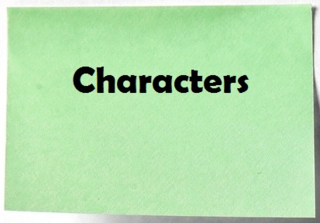Handling foreign accents and regional dialects
Sometimes,  characters who don’t speak English as their first language will appear in your story. A challenge you’ll likely face is how to portray them. While novice writers may be conscious of not replicating physical stereotypes (e.g. all Muslims wear white flowing clothes, headdresses, and large sunglasses, and have a swarthy complexion), sometimes they still mess up by having their characters use foreign accents and regional dialects.
characters who don’t speak English as their first language will appear in your story. A challenge you’ll likely face is how to portray them. While novice writers may be conscious of not replicating physical stereotypes (e.g. all Muslims wear white flowing clothes, headdresses, and large sunglasses, and have a swarthy complexion), sometimes they still mess up by having their characters use foreign accents and regional dialects.
Unless you’ve lived in another region of the world and so are familiar enough with the dialect there to replicate it with earnestness, writing dialogue in a foreign accent is best avoided. First, accurately imitating regional and ethnic dialects is difficult, and any reader who hails from or has visited that area will know it rings untrue. Secondly, regardless if the reader knows anything about the foregin accent or dialect, you run the risk of it coming across as stereotyped and offensive – and it may just well be, even if you didn’t intend for it to be so. Third, such language is difficult to read, so many readers find it irritating and a hindrance. If a lot of foreign accented dialogue is included, readers may even skip the passage or out the book back on the shelf. Finally, the way people speak does change over time, so stories with foreign accents and dialogue, even if accurately portrayed, risk becoming quaint with each passing year.
To that end, don’t frequently misspell words to indicate offbeat pronunciations. In addition, don’t use fragmented sentences. Lastly, avoid the excessive dropping of letters replaced by apostrophes, called an elision, which is the omitting of a sound or syllable when speaking.
Of course, having a non-English speaking character speak perfect English can come across as odd, too. But there are ways to refer to and establish a character’s “geographical identity.” Hints that they speak in a certain dialect or with an accent can be inserted, and readers can take it from there. One such hint is a simple statement about how the character speaks; for example, a character from the western United States might be described as speaking with a twang, while a Midwesterner might be described as stretching out his long vowels. Another possible hint is the character’s vocabulary; an Englishman would refer to an elevator as a “lift” and a truck as a “lorry,” for example; this might also include dropping in a word or phrase from a foreign language, such “gracias” for “thank you” if the character is from Mexico. Including an occasional elision, such as let’s for “let us” or e’en for “even” that has nothing to really do with the foreign dialect but merely shows the character speaks differently, is all right as well.
An exception to all of this is if you’re describing an alien species or colonists from another world in a science fiction or a fantasy story. Still, don’t take it to extremes, or you risk writing passages that readers will have difficulty working through.
Need an editor? Having your book, business document or academic paper proofread or edited before submitting it can prove invaluable. In an economic climate where you face heavy competition, your writing needs a second eye to give you the edge. Whether you come from a big city like St. Louis, Missouri, or a small town like Cheesequake, New Jersey, I can provide that second eye.
<A HREF="http://ws-na.amazon-adsystem.com/widg... Widgets</A>Related articles
 Downgrade your minor characters
Downgrade your minor characters Delete bookisms in your story's dialogue
Delete bookisms in your story's dialogue



